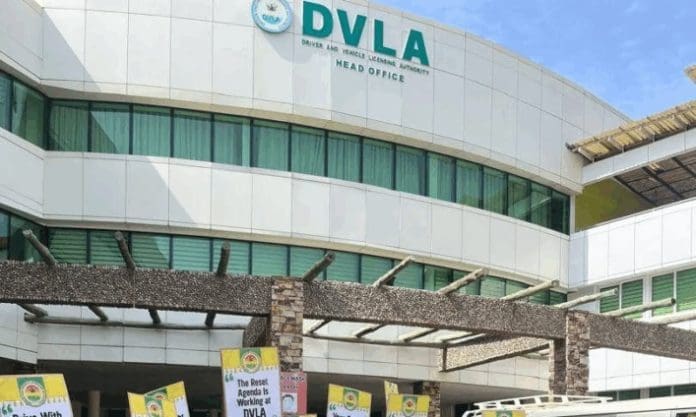The Ghana Committed Drivers Association has formally petitioned Transport Minister Joseph Bukari Nikpe to halt what it describes as illegal spot fines imposed by the Driver and Vehicle Licensing Authority, escalating a dispute over regulatory enforcement that has affected thousands of motorists since June.
In a strongly-worded statement signed by Chairman Charles Danso, the association argued that DVLA lacks legal authority to impose the GH¢225 delinquency fees introduced under its compliance enforcement regime. The petition demands immediate suspension of the practice and establishment of a transparent refund mechanism for affected drivers.
The controversy stems from DVLA’s June 2025 public notice titled “Roadside Checks Defects and Infractions, Delinquency Fees and Charges,” which referenced the Road Traffic Regulations, 2012 (LI 2180) to justify on-the-spot penalties for various road infractions. The association’s petition specifically calls for “an order to the DVLA to cease and desist from imposing and collecting any delinquency fees or spot fines, describing the practice as without any legal basis.”
According to the drivers’ association, careful examination of existing legislation reveals no provision granting DVLA authority to impose or collect fines directly from motorists. “The imposition of any fee or fine by the DVLA on non-compliant drivers is without legal basis,” the organization stated, arguing that the authority has overstepped its regulatory mandate.
The enforcement measures increased penalties from GH¢45 to GH¢225, with DVLA’s Ashanti Regional Manager Jerry Aflabo previously explaining that these sanctions aim to improve road safety. However, the drivers’ association contends that regulatory compliance must operate within established legal frameworks.
The association has notified the Attorney General about the matter and indicated it may pursue legal action if administrative remedies prove insufficient. The move signals potential court challenges to DVLA’s enforcement authority if the Transport Ministry fails to intervene decisively.
The petition emphasizes the association’s commitment to road safety while demanding lawful regulatory practices. “As an association representing thousands of professional and private drivers across the country, we stand firmly for discipline and safety on the roads,” Danso stated, adding that regulation must not be abused and drivers should not bear the burden of unlawful practices.
The dispute reflects broader tensions between regulatory authorities and road users over enforcement methods. Many drivers have expressed frustration at what they perceive as harassment and arbitrary charges, particularly given economic pressures affecting the transportation sector.
DVLA’s establishment under the 1999 Act positioned it as a key regulatory body under the Transport Ministry, tasked with vehicle licensing and road safety enforcement. However, the current controversy raises questions about the scope of its enforcement powers and the legal basis for direct penalty collection.
The drivers’ association argues that proper legal channels should handle traffic violations rather than on-the-spot penalty collection by DVLA officials. This position challenges the authority’s interpretation of its regulatory mandate and could have significant implications for road traffic enforcement practices.
Transport Minister Nikpe recently charged DVLA leadership to embrace innovation and adaptability in addressing evolving transport challenges, including autonomous and electric vehicles. However, the spot fine controversy now requires his immediate attention to resolve questions about DVLA’s enforcement authority.
The association’s intervention adds legal weight to driver complaints about the penalty system, potentially forcing a comprehensive review of DVLA’s enforcement procedures. The outcome could establish important precedents for regulatory authority limits in Ghana’s transportation sector.
Industry observers note that the dispute highlights the need for clear legal frameworks governing regulatory enforcement, particularly as authorities adapt to changing transportation dynamics and safety requirements. The case may prompt broader review of regulatory powers across various sectors.
The petition places the Transport Minister in a position where he must balance road safety enforcement needs with legal compliance requirements, while addressing legitimate concerns about regulatory overreach that could undermine public confidence in government institutions.
Source: newsghana.com.gh











